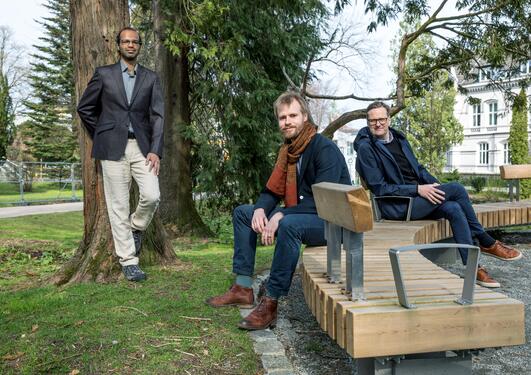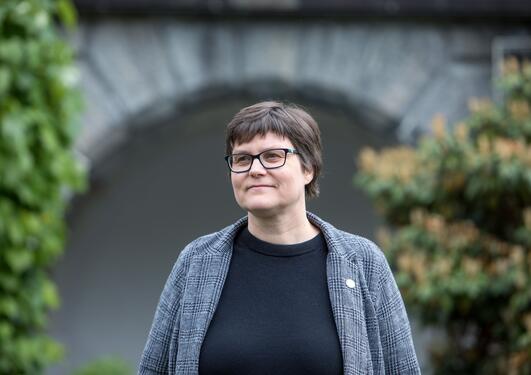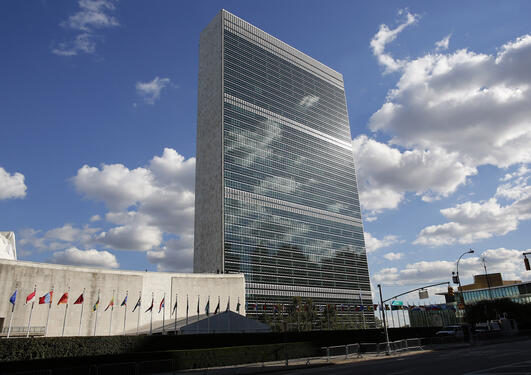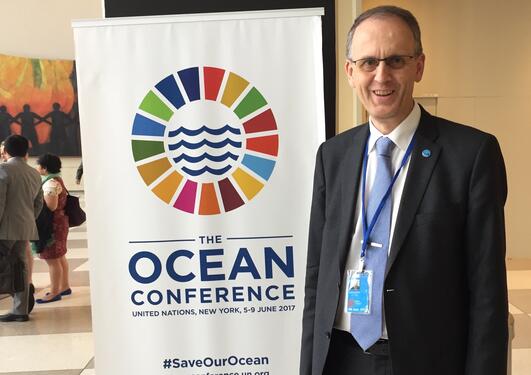On the road to sustainable cities and energy
UiB-researchers Siddharth Sareen and Jakob Grandin were among the speakers at events during the 2018 UN High-level Political Forum in New York.

Main content
In July 2018, the University of Bergen (UiB) represented the university and research sector at the High-level Political Forum (HLPF) at the United Nations in New York. This is the first time a university has been part of Norway's official delegation to a forum on this level.
Vice-rector for Global Relations Annelin Eriksen and Professor Edvard Hviding represented UiB in the delegation. Hviding also leads the task force for the strategic initiative SDG Bergen, initiated by Rector Dag Rune Olsen and his team.
Workshop on partnerships for SDG11
On Wednesday 11 July 2018, the researchers Siddharth Sareen and Jakob Grandin from the Centre for Climate and Energy Transformation (CET) presented their research at the forum.
In a workshop co-arranged by UiB and other world-leading SDG-oriented universities and hosted by UN DESA, Grandin presented how CET works to create transformative partnerships between society and academia, with a particular focus on SDG11.
“By working closely with actors in our region, we try to create what we call “actionable knowledge” – knowledge that is directly relevant for the particular times and places where it will be used by decision makers,” said Grandin in the workshop.
He based his workshop speech on experiences from UiB in accelerating SDG action, and spoke about his work to establish the UiB Collaboratory and its annual student conference.
“Students can play a central role in sustainability action. However, this calls for new types of partnerships within the university: between students and researchers. We launched the Collaboratory to allow students to actively define what problems and issues to study – and mobilise collaboration with society based on that.”
Side event on SDG7
Sareen was chosen to represent the academic community for the official Norwegian side event at HLPF, Global Agenda for SDG7 Action. His starting point was that social science research offers valuable insights to guide sustainable energy transitions.
“Energy transitions are historic moments to take proactive measures on energy poverty,” said Sareen as his second point when discussing his two policy briefs on SDG7: Clean energy for all, before moving to his third and concluding point, where in way of an example he mentioned that solar energy uptake in Portugal must combine socio-technical and justice issues.
“Metrics not only measure but also shape the energy sector, so choice of SDG7 indicators is key. Thus regulatory foresight and responsiveness to public interest are key to overcome inertia.”



